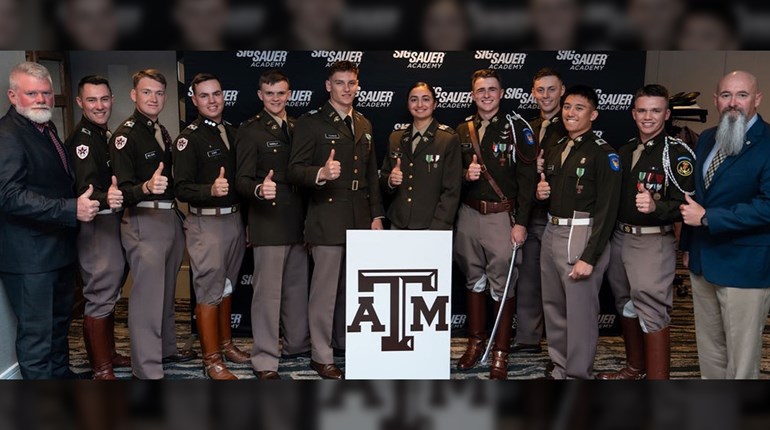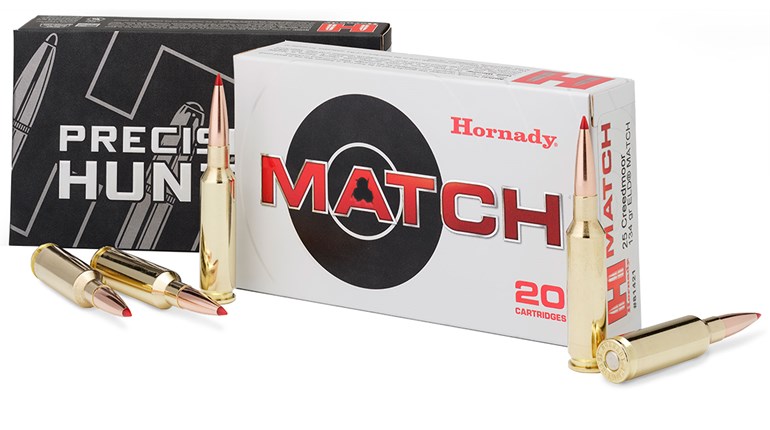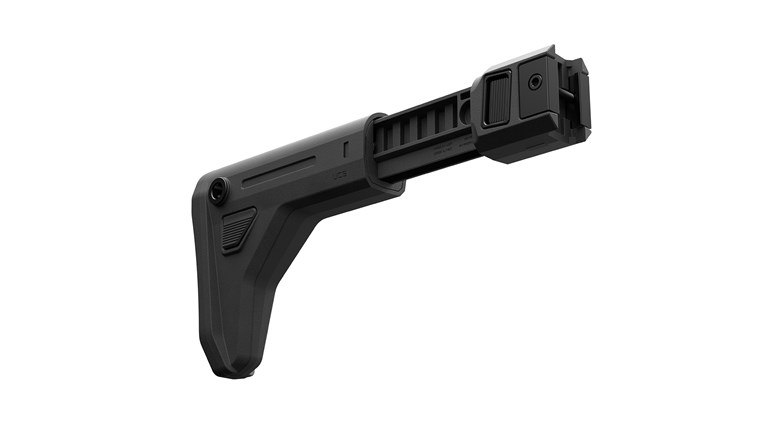
SIG Sauer has been making the P229 pistol for nearly 25 years. In that time, the pistol has been adopted for undercover use by many law enforcement agencies, including the United States Secret Service and the Federal Air Marshall Service. The P229 has also become a staple in the civilian concealed-carry community. As it has evolved over time, SIG has offered many variations, but all in the same compact size—comfortably between the full-size P226, and the subcompact P224.
The new P229c (the “c” is for “carry”) is not actually a P229 in the traditional sense. SIG’s model numbers usually denote a particular size frame and barrel combination. In designing the P229c, engineers took an inspired trip to the SIG Sauer parts bin and created a new size configuration—a P229 compact frame with a P224 subcompact slide and barrel assembly. Although the company calls this a P229, the pistol is actually a hybrid of the two traditional sizes, mating the compact frame with the shorter barrel.

On paper, the reduced length amounts to a shortening of the standard P229 barrel by a half inch—from 3.9 inches down to 3.4 inches. However, this may truly be a situation in which the whole is more than the sum of its parts. Even with a relatively small change, SIG has created an interesting new size class for this pistol that exhibits a nice synergy between the relatively generous size and capacity of the compact frame, and the shorter slide and barrel. This configuration results in a pistol that is a bit easier to conceal, without compromising a usable grip size or a healthy magazine capacity of 12 rounds of either .40 S&W or .357 SIG.

Other manufacturers have gone down this road—but generally to put a larger barrel on a smaller frame pistol. This always seems a bit backward to me, because I find a longer barrel harder to conceal than a longer grip. SIG calls this hybrid design a “reduced-length pistol,” which makes a lot of sense. This concept was first employed with the polymer-framed, striker-fired P320 Carry, and the idea has been carried over to the company’s established pistol line. This migration between product lines leads me to believe we may see even more of this type of design from SIG in the future.
Classic Design
The P229c exhibits typical SIG Sauer design—a traditional double-action/single-action, semi-automatic pistol with a decocking lever. The long and heavy initial double-action trigger pull eliminates the need for a manual safety lever, while still providing a high level of safety against an unintended discharge. Until the pistol is manually decocked, subsequent shots fire in single-action mode, with a crisp 4-pound trigger pull—making the P229c as fast and accurate as any pistol in its class, so long as you are comfortable with the heavier initial double-action trigger pull on the first shot. For shooters who like this type of action, SIG’s execution of the double-action concept is about as good as it gets.

External controls consist of a frame-mounted decocking lever, a slide-stop lever, a magazine-release button and a disassembly lever. The slide-stop lever is located, in typical SIG fashion, a bit farther back on the frame than on most semi-automatic pistols, and is sometimes confused with a thumb safety by those not familiar with SIG ergonomics. The placement of levers, however, is merely a training issue that is easily overcome with practice, if necessary.
Disassembly is very simple, requiring no tools and no tedious lining up of holes, drifting of pins or twisting of bushings. After locking the slide rearward and ensuring the gun is unloaded and no magazine is present, simply rotate the disassembly lever a half-turn and remove the slide off the front of the frame. Once that is accomplished, the barrel, guide rod and spring assembly can be removed. To reassemble, simply reverse the above-described process.
The P229c utilizes a double-stack, 12-round magazine, which puts it right between SIG’s compact (10-round capacity) and full-size (15-round capacity) pistols. The P229c model is currently available only in .40 S&W or .357 SIG. As you would expect, the P229c can utilize any legacy P229 magazine, as well as any of the larger P226 magazines, which will extend beyond the grip frame.

The P229c features wrap-around G10 grip panels with a mildly aggressive texture, and the front of the alloy frame has nicely machined checkering for increased grip on all sides. The surfaces are thoughtfully designed for optimum purchase under challenging conditions, without being so sharp as to be uncomfortable in regular use or daily carry.
Siglite Night Sights are present on the P229c. I have come to appreciate the crisp sight picture of these tritium units, and their luminescence is bright enough for use in very dark conditions. To my eyes, these sights are just as useful in bright light, too.

Stout Performance
Shooting the P229c proved impressive. The pistol is easy to grip and control. The relatively high grip position keeps the gun from twisting in the hand, even under the relatively strong recoil of the .40 S&W cartridge. Recoil-sensitive shooters should have no complaints. While recoil in .40-caliber handguns can be snappy, the weight and ergonomics of the P229c make this particular pistol very pleasant to shoot.
It functioned perfectly over an extended course of fire with a variety of ammunition types. Accuracy was quite good, and competitive with any pistol in its size class. Testing conditions at the range limited any significant amount of longer distance shooting, but getting good hits on a standard-size silhouette target at 25 yards proved easy.

The remarkable performance of this pistol is due in large part to SIG’s excellent trigger and sights—which are pretty much standard across the company’s “P22X” line. The roughly 4-pound, single-action trigger makes this pistol easy to shoot, and easy to shoot fast. If you are already a fan of SIG Sauer double-action pistols, you won’t find anything to dislike in this new iteration.
The P229c is purpose-built to be a concealed-carry handgun, and it conceals quite well for a model of its size. The shorter slide will not make much difference with an outside-the-waistband holster, but is noticeable if the pistol is concealed inside the waistband—especially if the shooter employs appendix carry. It appears to me that the P229c has some size advantage for concealment over a standard P229, without much compromise.
The primary drawback, if any, to the shorter slide and barrel would be a potential loss of muzzle velocity, but that did not seem to be a problem in testing. The premium defensive rounds from Winchester and Federal both averaged faster than 1,100 fps. A 3.5-inch barrel is certainly adequate in a pistol chambered for .40 S&W, and the muzzle-velocity loss compared to the slightly longer barrel is not significant enough to matter in a defensive scenario. Similarly, the slightly shorter sight radius did not have a negative effect on accuracy.

Shorter May Be Better
The P229c comes with all the features described above and two magazines, packed in a hard-sided, plastic, lockable case. It retails for $1,142, which is only a $34 dollar premium over a standard P229 or P224 with night sights. If this hybrid size is of interest to you, the price difference seems insignificant.
Although it is currently designated as a “limited-edition” model, the P229c should not be too hard to locate at your local stocking SIG dealer. If the hybrid size proves to be popular, the company may opt to make the P229c a regular catalog item.
As mentioned, current availability is limited to .40 S&W and .357 SIG, and there are no plans for a 9 mm version at this time. You can, however, purchase the SIG Sauer Caliber X-Change kit to convert either model to 9 mm. Ultimately, I hope SIG will reconsider this decision, and offer the P229c in 9 mm.
The model I tested was the basic “Nitron” model. SIG also offers the P229c SAS, which includes an anti-snag treatment that rounds all sharp corners and edges, as well as the company’s Short Reset Trigger. The SAS model lists for $1,176, or just $34 more than the Nitron model. Although I was not able to test the SAS, this seems like a small price to pay for two valuable additional features.
SIG Sauer’s commitment to quality is evident in the company’s offerings. All P229 pistols are manufactured in the United States and carry a lifetime warranty.
The P229 has a well-deserved reputation as a high quality, concealed-carry pistol. The new hybrid size of the P229c makes the gun even more suited to concealed carry, without any significant drawbacks. It will not surprise me if this “limited edition” becomes a mainstay of SIG’s line-up in the near future.







































